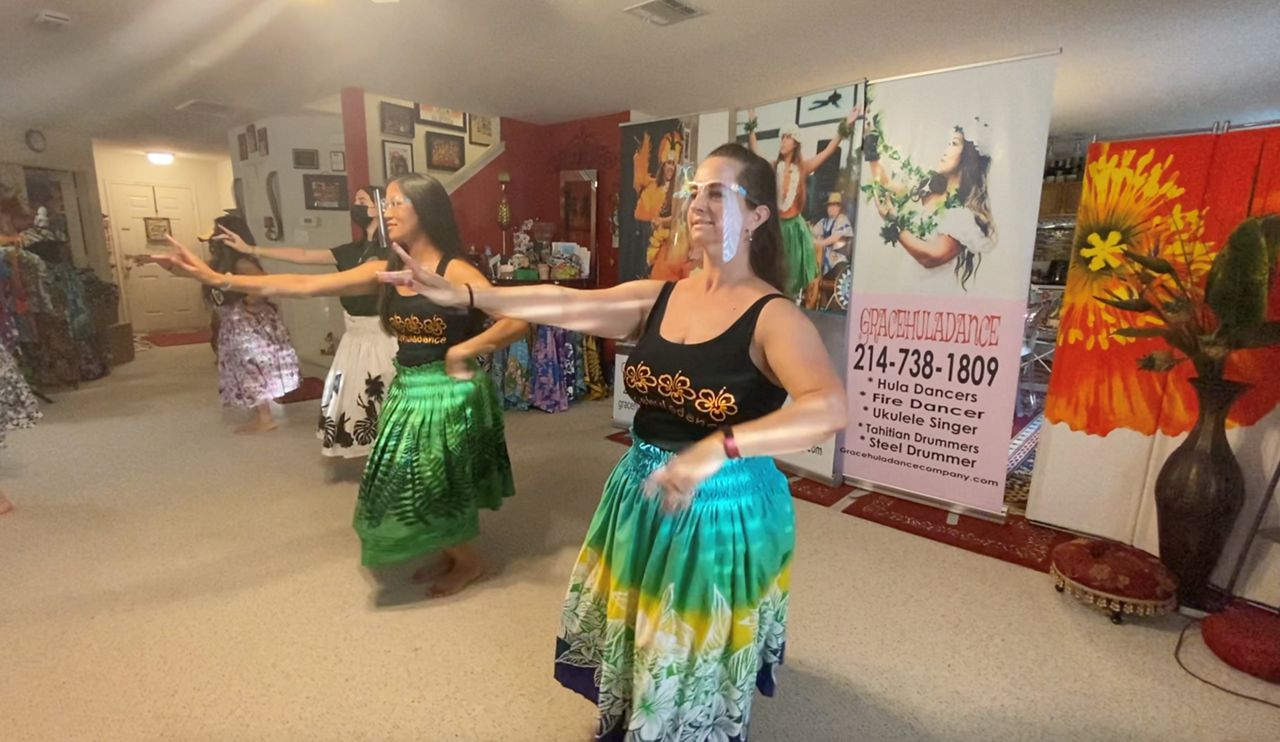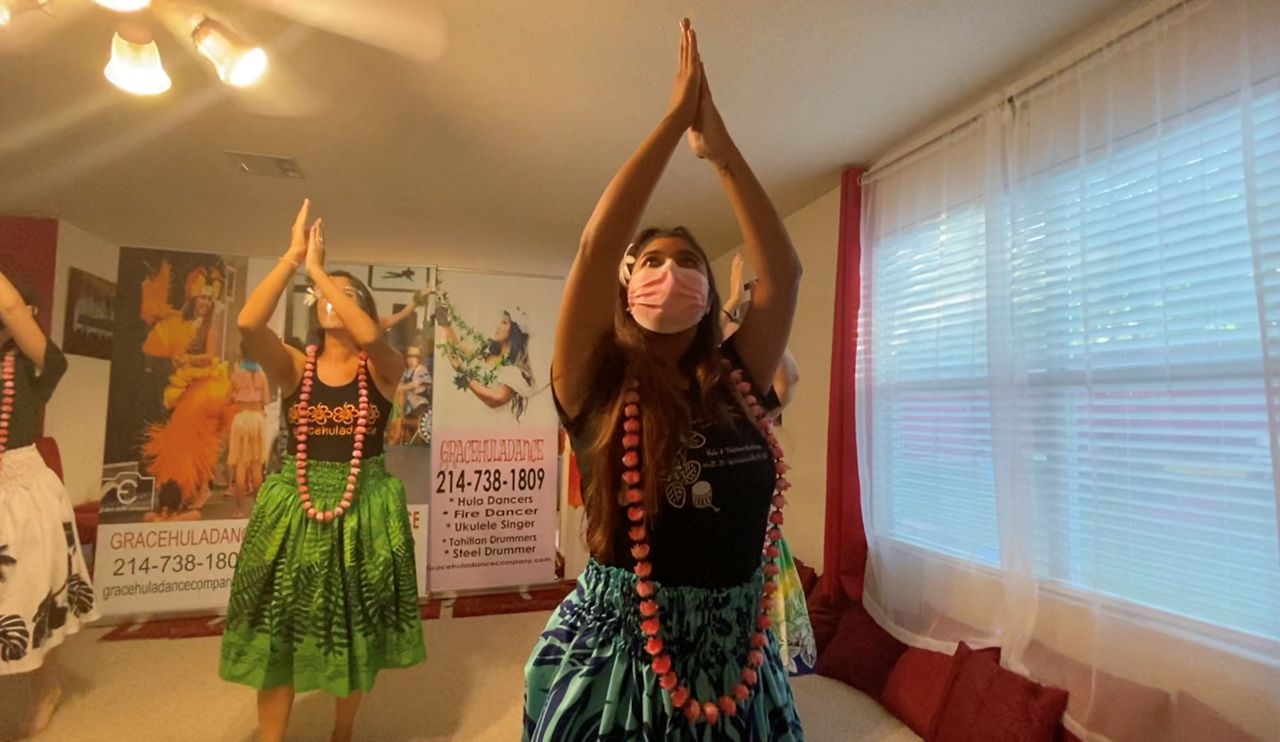FORT WORTH, Texas — Census Bureau data recorded in 2017 indicates there are about 73,000 native Hawaiians and Pacific Islanders living in Texas. There were also 1.7 million Asian Americans in Texas living in Texas then. The highest numbers of both Asian American and Pacific Islander populations in Texas were found in Harris County, followed by Dallas County and Tarrant County.
This diversity in Texas allows everyone in the Lone Star State to learn more about these cultures and celebrate them, especially during May, which is Asian American Pacific Islander (AAPI) Heritage month.
In Tarrant County, the Grace Hula Dance Company of Fort Worth is sharing the AAPI culture and spirit of aloha throughout the DFW area.
The dance school, or ‘hālau’, started back in 2001 out of Grace Kalakalani Evangelista’s garage in a north suburb of the city. Now, after 20 years it has turned into her full-time job to showcase the traditional dances of the Pacific island.

“This is my passion, you know. Like the saying goes, do what you love and love what you do, and this is it,” she said.
She feels a lot of pride in entertaining, but most importantly teaching the community more about the culture.
“When they see us dance it feels like they are in Hawaii. You know, we are able to share our culture to them, the aloha spirit, and you can see their faces, they're smiling."
Kalakalani Evangelista says it’s important to teach the real meaning behind the words they use and important values to others.
“Aloha means love and hello and goodbye, but most importantly, love,” she said.
Beyond lessons, her students form part of a special ohana [family].
"They’re all nice and they’re all loving to us,” said youth hula student Ava Madanski.
Ava's sister, Sophia Madanski, agrees that the concept of becoming part of a family as a dancer with Grace Hula Dance Company is one of the most rewarding parts of joining.
“It just makes me feel ohana - everybody is really sweet here,” she said.
One of the most important values that Kalakalani Evangelista wants her students to learn is to gain joy from everything they do, which is inevitable no matter what age group her dancers are in.
“They make me feel happy,” said youth dancer Emily Erikson.
For those who are now a long way from where they grew up on the Pacific islands, dancing with the Grace Hula Dance Company is a way to keep their beloved upbringing present.
“I love that we celebrate this and we share this with the population and make sure people see how amazing the Pacific Islanders and the Asians are,” said Christy Killian-Beckett, who grew up in Hawaii.
Others, such as Sarah Sutton, whose father was born and raised in O’ahu, Hawaii, say it allows new generations like her to connect with their heritage.
“I’m really proud of my heritage and being from the islands and it’s just an honor to be able to share that heritage and culture,” said Sutton, who forms part of the professional dancer group.
Those connections give Kalakalani Evangelista a lot of gratification and motivation to keep going.
“That’s my main goal in having this studio or this halau,” assured the professional dancer and instructor.
Because near or far, the island way of life is within them no matter where they are.




